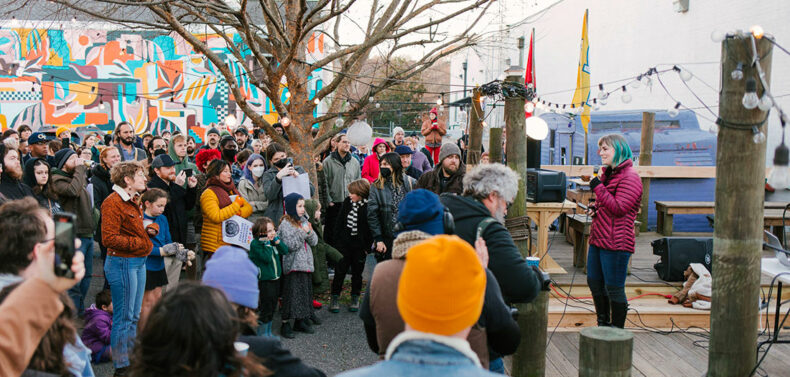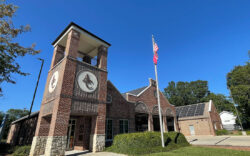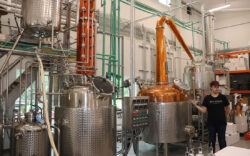After a nine-month union drive, Creature Comforts Brewery workers voted 21-32 last month against union representation through the Brewing Union of Georgia.
Creature Comforts issued a statement saying that they are “pleased, but not surprised” by the vote, which had an impressive 90% turnout of eligible workers. The company believes their workers voted “to affirm the incredible culture and company that we have already built together” which has “industry-leading benefits, competitive wages” and “numerous perks” for employees.
Creature Comforts declined to voluntarily recognize the Brewing Union when it first formed back in January, and it has fought against unionization all year. To that end, the company hired Littler Mendelson, a notoriously anti-union law firm also employed by Starbucks and Amazon. By making a technical objection to the size of the union’s bargaining unit, which was quite broad and included most workers in the company regardless of position, management was able to delay the union vote for several months.
These critical months allowed Creature Comforts to target union supporters, spread misinformation, intimidate employees and grind down the spirit of solidarity among workers, according to BUG steering committee member Spencer Britton. He said that brewery workers feared they would lose out on opportunities for promotion or that they might even be fired if they became involved in the union.
“A constant concern raised when people were asked about participation in organizing was that they were a family’s primary income source,” Britton said. “They feared that Creature management would either fire them or prevent them from future career growth if they were involved with any union activity.”
Of the five steering committee members who formed the union in January, only one remains with Creature Comforts today just nine months later. Some steering committee members quit their jobs voluntarily, but others were fired, including Britton himself. The company accused Britton of making violent threats at the workplace and placed him on a 10-week suspension before finally firing him in June.
Britton denied that he made any violent threats. Instead, he claimed he was fired in retaliation for his involvement with the union. BUG included this incident in an unfair labor practice claim which they filed against Creature Comforts earlier this year—one of several. Britton was not the only one who was allegedly pushed out. He said that more than 10 union supporters have left the company in the past year due to a hostile work environment. If true, that’s potentially enough to have changed the outcome of the election.
If the union election had taken place in February or March, as BUG wanted, the outcome may very well have been different. As such, BUG filed an official objection to the election that took place on Oct. 3 with the National Labor Relations Board and is still hoping that the union will eventually be recognized by Creature Comforts.
Because BUG is challenging the election, Creature Comforts has accused the union of not respecting the employees’ wishes in this matter. The company said executives “are confident we will overcome their challenges and that our team members’ votes will ultimately be honored.”
Likewise, the company rejected the idea that there is a hostile work environment at Creature Comforts. In its statement, it stressed that they acknowledge “the needs and concerns of all our team members, and recognize each one as a person and not just a role.” As a certified Benefit Corporation, or B-Corp, Creature Comforts has met a standard demonstrating that it offers social and environmental benefits to the community. The company stated that it is committed “to putting stakeholders above shareholders” and to being “a force for good in the world.”
Despite accusations of union-busting, the fact remains that of the 53 workers who participated in the election, over 60% of them voted against being represented by the Brewing Union of Georgia. According to one worker who spoke on the condition of anonymity, that’s because the union was disorganized, didn’t communicate well with employees and felt like a foreign third party rather than as a genuine voice of the workers. This perception led the employee to worry that the union might not be democratically run, and that it might grow out of their control and seek to extract money in dues while not providing much in exchange.
In one document, the lead organizer of the Brewing Union, Joseph Carter, was listed as both the president and secretary of the organization. Britton said the document was filed in error, and that Carter never possessed or even sought out either role, but this discovery added to concerns that the union actually sought to take control away from workers instead of promoting worker power. Since Carter has never worked at Creature Comforts, seeing him listed as president also added to the concern that the union was an outside entity that did not have the interests of the workers at heart.
This employee also said the union was overly secretive on more than one occasion and did not share important documents with workers willingly. For example, the union did not share its constitution with all Creature Comforts employees until just a few weeks before the vote. When it was finally revealed, it had provisions that seemed to concentrate power in the hands of an unknown executive committee. Britton said the constitution was a placeholder and would be completely rewritten in the near future with in-depth member participation, but that was not enough to satisfy those who felt they did not have a voice in Britton’s organization.
Furthermore, this worker felt the union never adequately explained its demands to all Creature Comforts workers, and never successfully made the case why workers should vote yes. The time lag between the union’s formation and the workers’ vote may have contributed to this. Workers who were hired after the union drive began may not have known why some of the previous employees had wanted the union originally. That is where BUG’s decision to include taproom employees, as well as those on the production line, came into play. The taproom is essentially a bar, with a higher turnover rate typical of the service industry, whereas jobs in the brewery itself are more akin to working in a factory or warehouse.
There is a possibility that the NLRB could rule that the brewery violated fair labor practices. In that case, the board could force Creature Comforts to recognize the union automatically, or it could schedule another election.
Like what you just read? Support Flagpole by making a donation today. Every dollar you give helps fund our ongoing mission to provide Athens with quality, independent journalism.










